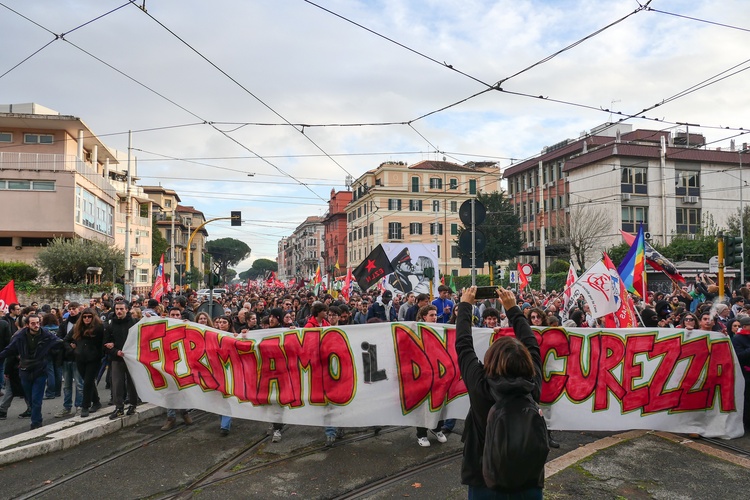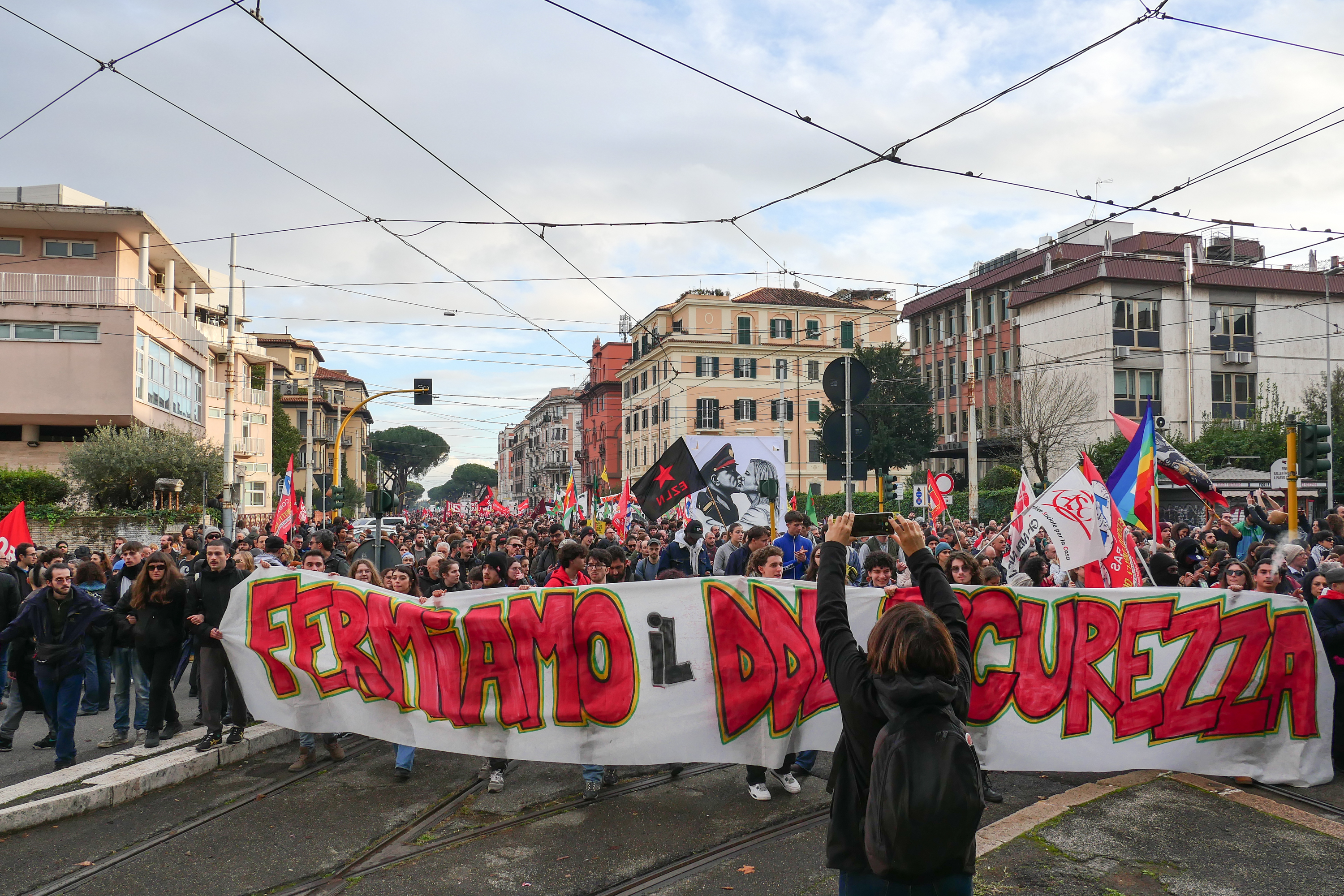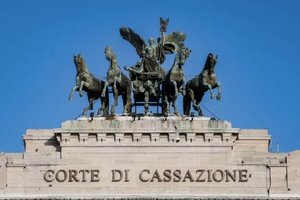The package has come under fire from many quarters for, among other things, allegedly undermining the right to peaceful protest.
The bill makes it a criminal offence to block roads and railways, with people found guilty facing up to two years in prison.
The move has been viewed as targeting climate protesters, who have frequently blocked roads in attempts to draw attention to the need to address climate change.
Until now, such protests were punished by an administrative sanction, such as a fine.
This comes after the government increased penalties in a previous measure for protests targeting works of art and monuments, with fines of up to 60,000 euros.
That came after the Ultima Generazione (Last Generation) climate group staged a series of stunts spraying colourful substances over several famous works, monuments and even waterways.
“Many people are on the streets to protest against a bill of fear, against the Right that aims to erase the right of freedom and the right to dissent,” said Nicola Fratoianni of the Green-Left Alliance.
The package also includes measures to protect police who are subject to acts of violence, a new crime to punish people who organise and-or participate in prison revolts, faster procedures to liberate illegally-occupied buildings and stiffer penalties for criminals who scam the elderly.
It clamps down of forms of ‘passive resistance’ to orders, such as hunger strikes, and makes it a felony for businesses to sell sim cards to people who do not have ID documents and a residence permit.
It scraps an exemption on pregnant women and women with children under one-year-old going to prison, a measure seen as targeting pickpockets on public transport.
ANSA











